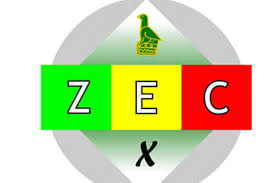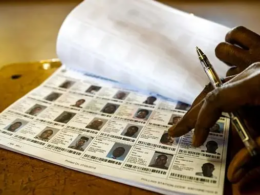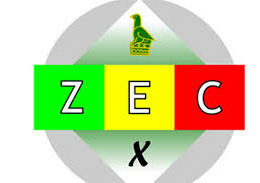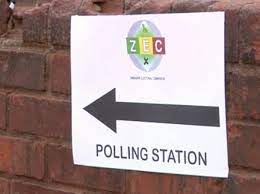By Veritas Zimbabwe
Delimitation in the context of elections in Zimbabwe is the fixing of electoral boundaries, the process of dividing the country into constituencies and wards for the purposes of electing persons as constituency members of the National Assembly and as councillors of local authorities.
The process is carried out in terms of sections 160 and 161 of the Constitution and section 37A of the Electoral Act.
The Constitution and Delimitation
Section 160 of the Constitution states that the Zimbabwe Electoral Commission (ZEC) must:
- divide Zimbabwe into 210 constituencies, for the purpose of electing Members of Parliament, and
- divide local authority areas into wards according to the number of members to be elected to the local authorities concerned.
It should be noted that the delimitation of constituencies is done only for the election of constituency members of the National Assembly. Senators and party-list members of the Assembly are elected on a provincial basis, and the boundaries of provinces are fixed by the President under the Provincial Councils and Administration Act as read with section 267 of the Constitution.
Section 161 of the Constitution sets out the way in which delimitations of constituencies and wards must be conducted. Key points to note in the section are:
- ZEC must conduct delimitations every 10 years, as soon as possible after a population census [section 161(1)].
- If a general election is held less than six months after a delimitation, the old constituency and ward boundaries must be used for the election [section 161(2)].
- So far as possible constituency and ward boundaries must be delimited so that equal numbers of voters are registered in each constituency throughout Zimbabwe and in each ward of every council area [section 161(3) & (4)]. The number of voters in a constituency or ward can however vary by up to 20 per cent above or below the average to take into account the considerations mentioned in the next paragraph [section 161(6)].
- In delimiting constituencies and wards, ZEC must take into account considerations such as physical features, communications, the distribution of voters and community of interests between them [section 161(6)]. This means that a delimitation cannot be a purely paper exercise. ZEC’s officers must where necessary go out and look at physical features and must consult voters – how else are they to ascertain if there are communities of interests?
When ZEC has delimited constituencies and wards, it must send the President a preliminary report showing the new boundaries, and the President must lay the report before Parliament – i.e. the National Assembly and the Senate – within seven days. Within 14 days after that the President must refer the preliminary report back to ZEC for it to consider any issue raised by himself or Parliament [section 161(7) & (8)]. ZEC must give consideration to any issue so raised, but its decision on them is final [section 161(9)].
Once ZEC has prepared its final delimitation report it must send the report to the President, who must publish it in the Gazette within 14 days.
The Electoral Act and Delimitation
Part VIIIA of the Electoral Act is headed “Delimitation of Constituencies and Electoral Boundaries” but only one brief section in the Part (section 37A) is concerned with delimitation. The other, much longer, section deals with something completely different – the establishment of electoral centres and the transmission of election results between centres.
According to section 37A:
- ZEC must give public notice in the Gazette and elsewhere before starting a delimitation exercise,
- When delimiting boundaries, ZEC must entertain representations from political parties, voters and other interested parties.
Brief though the section is, the sentiments expressed in it are admirable, requiring transparency and responsiveness in the delimitation process.
ZEC’s Timetable for 2022 Delimitation
In February this year ZEC published a helpful delimitation “roadmap” which set out a timetable for the delimitation that will precede next year’s general election. The roadmap can be accessed on the Veritas website [link]. In May ZEC followed this up with a Gazette notice, GN 1147B of 2022, announcing the commencement of delimitation and the closing of the voters roll for that purpose. This notice can also be accessed on our website [link].
Combining the two documents, we come up with the following timetable:
February – April 2022: Intensive mobile voter registration and voter education.
21st April 2022: National census conducted.
5th May 2022: Collection of census data completed.
May 2022: Cleaning of voters rolls for inspection.
24th May 2022: Publication of notice of delimitation.
30th May 2022: Closing of voters rolls for purposes of delimitation.
1st June 2022: Delimitation of boundaries begins (to continue until 31st December at the latest)
June 2022: Public inspection of voters rolls.
26th July 2022: Publication of preliminary census report.
January 2023: Delimitation report.
March 2023: Publication of final delimitation report.
No dates or details were given for entertaining representations from political parties, voters and other interested parties – an essential feature of any delimitation exercise.
Deadline for Completion of Delimitation
Whatever timetable ZEC sets itself, it must meet an important deadline: delimitation has to be completed six months or more before polling day in the 2023 general election. If it is not, then under section 161(2) of the Constitution the election will have to be held on the basis of the existing electoral boundaries, which were last fixed in 2008.
How long does this give ZEC?
To determine that, we need to see when the 2023 elections must be held.
Date of 2023 general election
Under section 158(1)(a) of the Constitution polling in a general election must take place not more than 30 days (i.e. one month) before the end of Parliament’s five-year term, which runs from the date the President-elect was sworn in after the last general election.
President Mnangagwa was sworn in for his current term on the 26th August 2018, so Parliament’s five-year term will end five years later, on the 26th August 2023. Polling day in the 2023 general election must be not more than 30 days before that, i.e. no earlier than the 28th July 2023.
Hence if the newly-delimited electoral boundaries are to be used in the 2023 general election, the delimitation exercise should be completed by the 28th January 2023, six months before polling day in the general election and just over four months from now.
Why is the Deadline So Short?
There is no satisfactory answer to that question.
As we pointed out earlier, section 161(1) of the Constitution requires delimitations to take place every 10 years “as soon as possible after a population census”. A census was taken in 2012 so the next one was due in 2022, barely a year before the general election. It was obvious that there would not be enough time for a delimitation if it was to be done thoroughly – and the need for a thorough delimitation was also obvious since the last thorough one was conducted in 1985 when the first constituencies were delimited after Independence. A thorough delimitation, with commissioners going round the country looking at the situation on the ground and consulting voters and interested parties, takes more than four months – the chairperson of an earlier delimitation commission expressed the view that it would take at least six months, probably more, to do the job properly.
There were two ways to solve the problem of lack of time:
- Section 161(1) of the Constitution could be amended to remove the link between delimitations and censuses. This would be feasible with the ruling party’s parliamentary majority and it would also be sensible because there is no real reason for the link. Censuses measure entire populations including children and other non-voters whereas delimitations are concerned only with registered voters, and if ZEC keeps voters rolls up to date – as it should – it knows where registered voters live without the need for a census.
- More simply, the Census and Statistics Act could be amended to provide for a census in 2021 rather than in 2022, to allow time for a proper delimitation to take place. Veritas suggested this option in Constitution Watch 3/2020 of January 2020 [link].
The Government dithered between both options. First, an amendment to section 161 of the Constitution removing the link between delimitations and censuses was inserted in the Constitution of Zimbabwe Amendment (No. 2) Bill, which was published in January 2020. Then the Government adopted the suggestion put forward by Veritas, and in June 2020 a Bill to amend the Census and Statistics Act was published; it was rushed through Parliament and was promulgated as an Act in September 2020. As a result the Census and Statistics Act now provides that:
“The next census shall be taken so as to be completed by the 1st July, 2021, and thereafter a census shall be taken every ten years from that date.”
But, having adopted Veritas’s suggestion to amend the Census and Statistics Act, the Government did not follow through. No census was taken in July 2021 as required by the newly amended Census and Statistics Act; instead the census was taken in April this year as if the Act had never been amended. As a result the census was not carried out in accordance with the Act, though that does not necessarily invalidate the data collected by it, and it is by no means clear when the next census should be held. What it does mean, though, is that we are left with the same problem the amendment was supposed to solve: too little time to conduct a thorough delimitation.
What Has Been Done So Far?
So far ZEC has conducted voter registration campaigns and has set about cleaning up voters rolls, publishing enormous notices in the Gazette to notify the public of corrections it proposes to make to the rolls. The new rolls have not however been published in the sense that copies are not being provided to the public in terms of section 21 of the Electoral Act.
Obviously these are vital preliminary steps to delimitation, because ZEC cannot fix electoral boundaries without knowing how many voters there are and where they live. But they are only preliminary steps, and the actual delimiting of boundaries is yet to begin because, we understand, ZEC is waiting for Zimstat to publish the final 2022 census report.
Time is getting short, however. There are just over four months before the deadline of the 28th January 2023, when the final delimitation report should be published. Of that period two months, or at the very least six weeks, will be taken up with preparing the preliminary report, getting it to the President and Parliament, considering issues raised by them and then publishing the final report. That leaves only about two months for the delimitation of boundaries.
Two months is not enough time for ZEC to delimit the boundaries of all the constituencies and wards in Zimbabwe, if the job is to be done properly – and it must be done properly because delimitation is so important for democracy.
Importance of Delimitation
Elections in Zimbabwe must be held on the basis of universal adult suffrage and equality of votes. This is stated in section 155(1)(c) of the Constitution. The need for equality of votes is echoed in international conventions and instruments to which Zimbabwe is a party: for example in article 21(3) of the Universal Declaration of Human Rights, article 25(b) of the International Convention on Civil and Political Rights, and the definition of “free elections” in the SADC Principles and Guidelines Governing Democratic Elections.
Equality of votes, or equal suffrage as it is sometimes called, means that all votes must be of equal weight: the vote cast by any one voter must not count for more than the votes cast by other voters. If there are only 500 voters in constituency A, for example, while there are 5 000 in constituency B then the votes cast to elect a Member of Parliament for constituency A have ten times more weight than the votes cast to elect a Member for constituency B. Such a discrepancy is a negation of democracy.
To ensure equality of votes, constituencies must be delimited so that, so far as possible, there are equal numbers of voters in each constituency. We noted earlier that this is laid down in section 161 of the Constitution, though the section allows voter numbers to vary by up to 20 per cent above or below the average.
Equality of votes is not the only requirement for a democratic election – obviously not – but it is a prerequisite because if some votes count more than others the election cannot be truly democratic.
Conclusion
The last delimitation was conducted in 2008, fifteen years ago, and there were complaints then that constituency boundaries had been gerrymandered – i.e. manipulated. With each passing year more voters will have died, moved home or left the country and more new voters will have been registered. After such a long time there is a pressing need for a careful, thorough delimitation, but in the short time remaining before the next election what hope is there of carrying it out?
There is little point in asking who is to blame for this situation, but it is worth noting that it has arisen through a disregard for the law. The problem of lack of time between the census due in 2022 and the delimitation due before the election in 2023 was foreseen and timely steps were taken to meet it by amending the Census and Statistics Act. That amendment was disregarded however and the census was held illegally this year as if the Act had never been amended. As a result there will not be a proper delimitation and the democratic credibility of next year’s general election will be prejudiced.
Disregard for the rule of law leads inevitably to bad governance.








